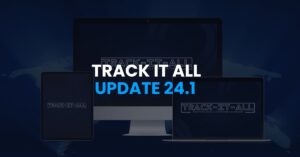Key Takeaways:
- HR management systems can streamline processes and enhance efficiency.
- These systems centralize and automate HR processes, from employee data management to payroll processing.
- Implementing an HR management system can reduce administrative burden, improve accuracy, and provide real-time analytics and reporting capabilities.
What are HR Management Systems?
HR management systems are software solutions designed to streamline HR processes and improve overall HR operations within a business. These systems are designed to enhance efficiency, cut down manual labor, and provide comprehensive solutions for tackling HR management. Modern HR management systems offer a range of key features, including employee data management, talent acquisition, performance tracking, and payroll processing, among others. Centralizing all HR functions enables real-time access to all employee data, which is critical to running a stronger and more efficient business. A typical HR management system integrates with other existing systems such as the company’s calendar or email platforms. This compatibility allows users to easily access all data without having to leave the HR management system or switch between applications. It also helps to reduce manual data entry errors, which enhances accuracy and saves time.Track it all: HR management systems provide customizable dashboards that offer real-time analytics and reporting, enabling quick access to up-to-date information on employee performance, attendance, and other HR metrics.
Benefits of HR Management Systems
Implementing HR management systems in your business can provide a wide range of benefits. One of the most significant advantages is the ability to automate manual HR tasks, freeing up time for your HR team to focus on more strategic activities. By automating processes such as data entry, performance tracking, and payroll processing, you can reduce administrative burden and improve efficiency. HR management systems also help to improve accuracy and enhance data security, reducing the risk of errors or data breaches. Real-time analytics and reporting provided by HR management systems enable improved decision-making capabilities, with insights into employee performance, attendance, and other key metrics. This can help you to track it all, from recruitment to employee retention and development. By streamlining HR processes and improving overall HR operations, HR management systems can help your business stay competitive in the modern market.Choosing the Right HR Management System
Investing in an HR management system is a crucial step towards optimising your business process. But with a wide range of options available, choosing the right HR management system can be overwhelming. To help you make an informed decision, here are some key factors to consider:| Scalability | Ensure that the system can accommodate your current and future business needs, such as employee growth and expansion plans. |
|---|---|
| Integration | Consider how well the system integrates with existing business processes and systems to avoid potential conflicts and improve overall efficiency. |
| User-Friendliness | Choose a system that is easy to use and accessible to all employees, regardless of their technical skills or background. |
| Cost | Consider all costs associated with the system, including implementation, training, and ongoing maintenance, to ensure it fits within your budget. |
Implementing HR Management Systems Successfully
Implementing an HR management system can be a game changer for your business, but it requires proper planning and execution to be successful. Here are some tips to ensure a smooth implementation:- Identify key stakeholders: Get buy-in from all departments that will be impacted by the system, including HR, IT, and management. Create a team responsible for overseeing the implementation.
- Set clear goals: Define what you want to achieve with the HR management system. Ensure that the system aligns with your business goals and HR strategies.
- Choose the right vendor: Research and compare different HR management systems to find the one that meets your specific needs. Look for a vendor with experience and a good reputation in South Africa.
- Train your employees: Provide comprehensive training to employees on how to use the system. Ensure that they are comfortable with the system and understand its functionalities.
- Test the system: Before going live, test the system to ensure that everything is working properly. Identify and fix any bugs or issues.
- Communicate: Keep all stakeholders informed throughout the implementation process. Provide regular updates and address any concerns or questions they may have.
- Track it all: Track the effectiveness of the system and measure its impact on the business. Use data analytics to gather information on the system’s performance and ROI.
The Future of HR Management Systems
HR management systems are constantly evolving to keep up with the changing demands of the modern workforce. The integration of artificial intelligence (AI), machine learning, and chatbots is transforming HR functions, enhancing employee engagement and enabling predictive analytics. With AI, HR management systems can automatically sort through thousands of resumes and identify candidates that match the required qualifications. Machine learning can analyze employee data to identify patterns and trends, enabling HR teams to take proactive steps to address issues such as employee turnover and low productivity. Chatbots can provide real-time assistance to employees, answering their questions and providing support. HR management systems are also becoming more mobile-friendly, allowing employees to access HR services on their smartphones and tablets. This enhances their experience by enabling them to track everything from leave requests to performance evaluations on-the-go. As HR management systems continue to develop, businesses in South Africa must stay up-to-date with the latest trends and advancements to remain competitive. By leveraging the power of HR management systems and embracing emerging technologies, businesses can seamlessly track it all and create a more engaged and productive workforce.Case Studies: HR Management Systems in South Africa
Implementing an HR management system can have a significant impact on the efficiency and productivity of your business. Don’t just take our word for it. Here are some real-life examples of businesses in South Africa that have successfully implemented HR management systems and are reaping the benefits.| Company | Industry | Challenge | Solution | Outcome |
|---|---|---|---|---|
| ABC Manufacturing | Manufacturing | Difficulty tracking employee training and performance | Implemented an HR management system with performance tracking and e-learning modules | Improved training efficiency, increased employee engagement, and enhanced overall performance |
| XYZ Consulting | Consulting | Manual recruitment processes leading to lengthy hiring timelines | Implemented an HR management system with automated recruitment and onboarding capabilities | Reduced hiring timelines, improved candidate experience, and increased talent retention |
HR Management Systems vs. Traditional HR Approaches
When it comes to managing your business’s HR functions, you have two options: traditional manual approaches or automated HR management systems. While manual HR processes may have sufficed in the past, they are no longer adequate for businesses looking to stay competitive in the modern market. Manual approaches tend to be time-consuming, error-prone, and resource-intensive. They require a lot of paperwork, which is vulnerable to loss, damage, and theft. It’s easy to misplace or misfile important documents such as employee records, performance evaluations, and tax forms. This can lead to compliance issues, legal liabilities, and administrative headaches. On the other hand, HR management systems streamline processes, reduce paperwork, and enhance accuracy. They centralize HR functions, making it easy to track it all in one place. This includes employee data, talent acquisition, performance tracking, and payroll processing. HR management systems automate manual HR tasks, reducing the administrative burden on HR staff. They provide real-time analytics and reporting, enabling improved decision-making capabilities. By leveraging HR management systems, businesses can save time, money, and resources, while also improving compliance, accuracy, and data security. They foster strategic HR decision-making, allowing businesses to stay on top of their HR functions and respond proactively to changing workforce demands. The choice between traditional HR approaches and HR management systems is clear: opting for the latter is the smart choice for any business looking to optimise their HR functions and stay ahead in a competitive marketplace.Key Features to Look for in HR Management Systems
When selecting an HR management system for your business in South Africa, it’s important to consider the specific HR needs and goals of your organization. Here are some key features to look for:Track it all with employee data management
Effective HR management systems should allow for the efficient tracking of all employee data, including personal information, performance metrics, and employment history. Look for a system that offers a centralized database for storing this information, with customizable fields to suit your business requirements.Empower employees with self-service portals
Employee self-service portals can streamline HR tasks by allowing employees to manage their own data, such as personal information and leave requests. This can reduce the administrative burden on HR staff, and empower employees to take control of their own HR needs.Recruit and onboard with ease
A comprehensive HR management system should support end-to-end recruitment processes, from job posting and candidate screening to onboarding and induction. Look for a system that can automate these tasks, reducing manual effort and improving the quality of hire.Improve performance management
HR management systems can also enhance performance management processes by providing real-time feedback and goal tracking. Look for a system that supports continuous performance management, with tools such as goal setting, performance reviews, and development planning.Access real-time analytics and reporting
Real-time analytics and reporting tools can provide valuable insights into HR processes, employee engagement, and business performance. Look for a system that offers customizable dashboards and reporting functionality, allowing you to track key metrics and make data-driven decisions.Ensure compliance with payroll processing
Payroll processing is a critical function of HR management, and it’s important to choose a system that can handle this task accurately and efficiently. Look for a system that supports compliance with tax regulations, as well as automated payroll processing and reporting. By selecting an HR management system that offers these key features, you can optimize your HR functions and enhance overall business performance.Conclusion
By implementing HR management systems, you can track it all – from employee data management to performance tracking and payroll processing. These systems can streamline processes and enhance efficiency, enabling you to stay competitive in the modern market. Choosing the right system and successfully implementing it requires careful planning, proper training, and ongoing support. However, the benefits of implementing HR management systems are significant. These systems can automate manual HR tasks, reduce administrative burden, and improve accuracy and data security. Real-time analytics and reporting provide improved decision-making capabilities. Looking to the future, emerging trends and advancements in HR management systems, such as AI, machine learning, and chatbots, will continue to enhance HR processes, improve employee engagement, and enable predictive analytics. Real-life examples of businesses in South Africa showcase the success of HR management systems. Comparing traditional HR approaches with automated HR systems highlights the limitations of manual HR processes and the advantages of using HR management systems.Key Features to Look for in HR Management Systems
When evaluating HR management systems, it is essential to look for features such as employee self-service portals, performance management tools, recruitment and onboarding capabilities, and analytics dashboards. Choose a system that aligns with the specific HR needs of your business. Optimising your HR functions with HR management systems is crucial for businesses in South Africa. By tracking it all, you can drive efficiency, improve compliance, and foster strategic HR decision-making. It’s time to take action and start leveraging the power of HR management systems in your business. Implementing HR management software can also streamline processes such as payroll, recruitment, and performance management, saving time and reducing errors. With the right system in place, you can also provide employees with self-service options, empowering them to manage their own HR-related tasks. Don’t get left behind – invest in HR management software to stay ahead in the competitive South African business landscape.Are Inventory Management Systems as Important as HR Management Systems for Business Optimization in South Africa?
Inventory management systems in south africa play a crucial role in enhancing business optimization. They ensure efficient monitoring and control of stock levels, reducing wastage and improving customer satisfaction. Just like HR management systems, inventory management systems aid in streamlining operations, maximizing productivity, and ultimately boosting profitability for businesses in South Africa.
How Can HR Management Software Help Optimize HR Tasks in South Africa?
HR Management Software in South Africa can significantly enhance the efficiency and effectiveness of HR tasks. This software streamlines and automates processes like recruitment, employee onboarding, performance management, and payroll, allowing HR teams to save time and focus on strategic initiatives. With features like data analytics and reporting, it enables HR professionals in South Africa to make data-driven decisions and gain valuable insights for workforce planning. Embracing HR management software can contribute to better HR management practices in South Africa and improve overall organizational productivity.








